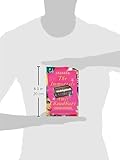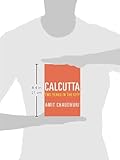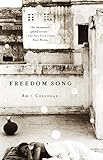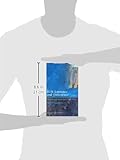Amit Chaudhuri first came into public light with his collection of short stories, A Strange and Sublime Address which featured a young boy's experiences in the author's native Calcutta. After establishing himself as an important voice in Indian fiction written in English in less than a decade with works such as Freedom Song, The Immortals and Afternoon Raag, Chaudhuri also revealed himself to be a talented critic with Clearing a Space: Reflections on India, Literature and Culture. In this work, he showed a propensity to interweave memory and opinion while delving into issues of culture and politics. Written over a span of almost 15 years, Chaudhuri mourns the grave losses incurred by Indian literature due to the cultural and economic changes taking place.
His work includes an anthology of poems, St. Cyril Road and Other Poems, published in 2005, and The Picador Book of Modern Indian Literature. His academic work D.H. Lawrence and 'Difference': Postcoloniality and the Poetry of the Present was hailed as "groundbreaking" by English critic Terry Eagleton. He has received the Commonwealth Prize, Betty Trask Prize, Encore Award, LA Times Book Prize for Fiction, Sahitya Akademi Award among others.
His latest collection of essays, Telling Tales (Penguin), is a compilation of his publications from Telegraph (Calcutta), Granta and London Review of Books. The essays offer insights on growth, mass culture, literature, politics, and – through these themes – upon India’s rising aspirations.
Telling Tales asks, at which stage does literature confront the burden of mass culture? What is the future of Indian democracy? What about the endangered species—serious writers, responsive readers and dedicated publications? Will they survive the outrageous storm of capitalism?
Recently I reached out to him for a discussion on his life and work. Here are the edited excerpts of our conversation:
Atul K. Thakur: Telling Tales, a collection of your essays from different publications, aims to offer your personal views as a columnist on a range of themes. Can you tell us a little more about how this book came together?
Amit Chaudhuri: I wanted to collect some – not all – of the short essays I write for my column in The Telegraph (Calcutta). The reasons for this were many: to prove that short, ephemeral pieces might have an unsuspected life and reward rereading; that their very brevity and seemingly ephemeral quality may be inviting; that the transient nature of a column might lead to the opening up of the imagination, precisely because we sometimes convey our more interesting observations in our throwaway remarks.
But the book also contains longer essays from Granta, the London Review of Books, and other places, and the montage of pieces is meant to provide a perspective on what a writing life undertaken for over two decades might look like.
AKT: Not long before Telling Tales, you came out with two more non-fiction books, which were Calcutta-centric: Calcutta: Two Years in the City and On Tagore: Reading the Poet Today. What compels you to write about Calcutta? Does writing about this city brings you closer to its multi-layered structure or vice-versa?
AC: Telling Tales is not just about Calcutta but about various things. To answer your question, though – I suppose being an outsider to the city I was born in but never lived in, a city I knew from childhood but which had its greatest impact on me when I was in exile from it rather than of it, gives me a curious relationship to this place – and to cities and places in general.
AKT: You have been recognized and acclaimed for your prose writing. Time and again, you were called (including by Salman Rushdie) one of the finest contemporary prose writers. You have written a lot of novels and literary essays and I am curious to know whether, apart from your non-fiction projects, you will again shift to writing fiction in the near future?
AC: Thank you for relaying these kind words, exaggerated though they may be. My next book, due in November in India, and early next year abroad, is indeed a novel, called Odysseus Abroad.
AKT: How do you see the universal development of literary writing? Do you think that the space for the novel is now fast shrinking given the downward spiral with poetry and stories? Any specific comment you want to make about Indian writing in English?
AC: Our ideas of writing are going through a transition, everywhere, India included. The boom period of capitalism in the nineties and the early 2000s, which was also the boom period for the novel – especially the novel of nation and history – is over. Even if the boom returns – booms are periodical and durational – we know better than before now the costs of embracing the market: to bookshops, books, the culture of reading.
But we also know that the reasons for which the publishing and music industries began to self-destruct – with the arrival of e-books, free downloads on the Internet – actually had some transformative consequences. The Internet might have been one of the key instruments of free-market globalization; but it was also appropriated by ordinary users in the interests of creating a ‘commons’ – a free public space of congregation.
YouTube became one such place, where you could, and still can, see both clips of Malayalam soft porn and interviews with Mani Kaul and Michel Foucault. Similarly, you notice the rise of independent publishers, and of small magazines on the net – what I’m saying is that we’re at a stage when the fluidity of the very market that made complex conversations about culture seem impossible is, in one of its habitual bouts of self-destruction, creating cracks through which those banished conversations are returning.
The publication of Telling Tales, too, inhabits one of those cracks – its appearance is almost an unintended, inadvertent act: I can’t imagine it will make any money for its publishers. I can only deduce, from its publication, that some anomalous, outdated raison d’etre – like the value of writing – has managed to surreptitiously survive in today’s distracted scenario.
AKT: You spoke and wrote on occasion about the merits of vernacular literatures in India—in fact you worked meticulously to highlight the remarkable works of Arun Kolatkar. You also made the world more informed about the literary contributions of Jibananda Das, who died very young age and for a long time did not get the recognition he deserved. Was it because the personality cult of Rabindranath Tagore has been religiously accepted in Bengal and has overshadowed numerous contemporary writers? In one of your essays, you contested the Bengalis’ obsession with over-celebrating the 25th day of Baisakh (May), also the month of Tagore’s birth. How should it be seen now?
AC: We can’t blame poor Tagore for the neglect of Jibanananda Das, nor for a whole constellation of astonishing Bengali writers and poets – but, yes, we can certainly blame an increase in Tagore-worship for this neglect. Much of the focus on Tagore comes from the narrowing of the contemporary Bengali’s cultural and political outlook, wherever he or she happens to be, in Calcutta or New Jersey or Atlanta City.
The narrower the Bengali’s cultural and intellectual concerns have become, the greater the centrality given to Tagore – through a rather self-interested form of reverence. And it’s a narrowing that runs counter to the legacy of Tagore’s own eclectic and irreverent relationship with Indian and Western culture.
AKT: In Telling Tales, you write about lives at the margins in big cities. What consequences will Indian cities face for their ruthless acceptance of highly contradictory changes?
AC: There will indeed be consequences for our adherence to short-term goals in development, for our cavalier attitude to both primary and higher education, and the lack of institutional support for culture and the arts. Our insistence that the arts, freedom of expression, and learning are luxuries has already cost us dearly.
AKT: An essay from your latest book contests the representation of the partition of India in 1947 by a set of writers. Later, in response to Mukul Kesavan’s counterargument in Telegraph (Calcutta), you substantiated your views further. Should the partition of India now be seen like a massive riot or an artificial disaster created for keeping the culture of political personification intact?
AC: I suppose I was saying that I disagree with historical events – Partition, Independence - being given a sacredness, uniqueness and centrality that, when you live through them, they don’t necessarily have. No one denies pain, or the pain of history – but part of our understanding of the impact of events must explore our right to not give them significance from time to time, to even forget them.
Atul K. Thakur is a New Delhi-based journalist and writer. His first book is India Since 1947: Looking Back at a Modern Nation/ Niyogi Books. He is currently editing another anthology on India and also working book on Nepal’s modern political history. He can be reached at summertickets@gmail.com and on Twitter @atul_mdb.




